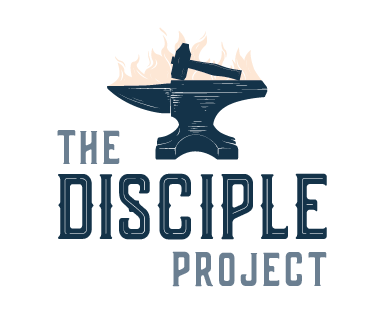Before you set your hair on fire, here me out.
I was scrolling through some Facebook posts and saw “We used Dungeons and Dragons as a way to share the gospel”, or something like that and I was immediately intrigued. You see, I grew up in the 80’s during what was labeled The Satanic Panic. I was also an avid Dungeons and Dragons player. I saw right through this though, even as a teen I knew what Dungeons and Dragons was, it’s a story telling game.
This youth pastor, took a story telling game, that many of his students were already playing, and used it to tell the greatest story ever told. That’s a win in my book.
If you don’t know, Dungeons and Dragons has risen in popularity starting with a live play show called Critical Roll.
Dungeons and Dragons being featured in pop-culture like Community, Big Bang Theory, and Stranger Things.
and even more recently on a show called Ghost
Billy stepped outside the box to use Dungeons and Dragons not to teach his students how to play the game or even talk about it as something everyone should play, but used it as a framework for sharing the gospel.
Youth Pastors, and Pastors, have been using frameworks for decades to share spiritual truth, from Star Wars to the MCU to Harry Potter, so using Dungeons and Dragons isn’t a stretch and isn’t better or worse than other frameworks. Billy used this framework because it reached his kids.
If you’re considering using a framework that’s a little outside the box to teach spiritual truths, here are a few questions you should be asking.
Is the framework relatable to your group?
What is your youth ministry into? They’re all into something, but they’re not all into the same thing. Billy had a significant amount of students who were playing the game to make it worth his while to use DnD as his framework to discuss Jesus.
Have you talked with your leaders?
Billy made sure he talked with his adult leaders and made sure they were on board. Many of his leaders only knew of Dungeons and Dragons second hand. Billy asked his leaders to come along for the ride, and they did. The worst thing a youth worker can do is “come up with a brilliant idea”, never tell anyone about it, and spring it on their group.
Have you talked with your Pastor?
Getting a broad census, before using an out of the box framework, is essential to the success of the framework working. You should have your pastor’s blessing so that he can have your back if things go sideways. Billy had an advantage as his Pastors kids were part of his group playing the game. In other words, don’t go forward without permission or reinforcements.
Have you talked with your students?
If you are wanting to share spiritual truth with the student in your group using a framework that makes sense to them, then having them in conversation is critical. Billy talked with the students who played DnD and asked for their input and feedback. Although Billy had a knowledge of the game, it was his students who were able to help him draft an outline using central verbiage and concepts from the game that would make sense even to those students who have never played the game.
Have you done your homework?
All of the above questions are part of the homework you have to do if you’re going to effectively use a cultural framework, but you must also know the framework yourself otherwise you lose credibility. If all my kids watch Dragonall Z and I want to do a lesson, or a series of lessons, using the Dragonball Z framework, but I have not watched the show enough, understand the characters or understand how much the show means to the students who watch it then I am setting myself up for failure.
These students, who I desperately want to reach with the gospel, will be offended by me not taking the source material seriously. My lesson will come across as a cheap co-op and Jesus-ification of their fandom and it will have done more harm than good.
Not every fandom/framework works
Squid Games was big for season, but using a violent dystopian series on Netflix is not be the best way to share spiritual truth. In fact, exposing your students to harmful fandoms that have little to know spiritual value works against the gospel. Some youth pastors tried to Use 13 Reasons as a backdrop to share but it backfired with students and parents who did not want their kids to know anything about the show due to it’s message about suicide.
Some fandoms are void of any connective tissue to spiritual truths and anything you might come up with, would be a stretch.
Youth Pastor, hear me as one who has made the mistake of trying to draw something spiritual from something cultural, it doesn’t always work and some things are better left alone. Don’t push your fandom, respond to their fandom.
If you’re interested in how Billy actually structured his lessons, he has graciously allowed me to put them up in my store, for free, so you can easily have access to them.
Also, if you ever want to experience the game, first hand, let me know.
